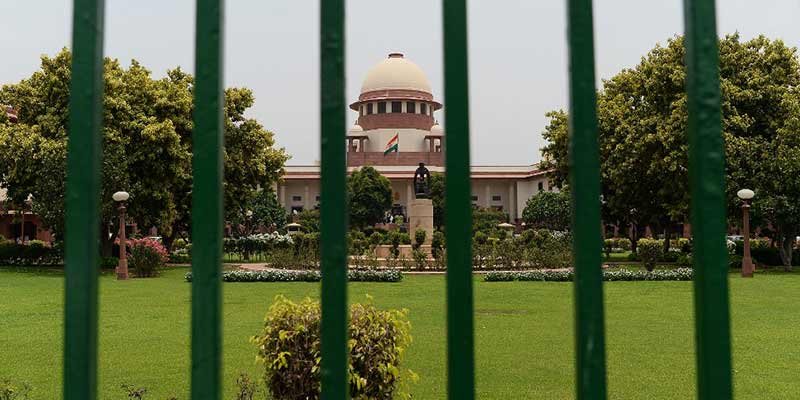- India
- Oct 30
- Kevin Savio Antony
What is abetment of suicide?
The recent Supreme Court stance on abetment of suicide in the workplace aims to limit unwarranted prosecutions, acknowledging that not every instance of workplace stress or confrontation qualifies as “abetment” in a legal sense.
What is abetment of suicide?
• Under Section 107 of the Indian Penal Code (IPC), “abetment” involves instigating someone to act, conspiring with others to bring about an act, or intentionally aiding someone in the act.
• Section 306 IPC (now also under Section 108 of the Bharatiya Nyaya Sanhita, 2023) defines abetment of suicide, punishable by up to 10 years in prison and a fine.
• The judiciary has maintained a high standard for proving abetment of suicide.
What was the case about?
• In the recent case before the Supreme Court, the sales officer, Rajeev Jain, allegedly faced harassment to accept a Voluntary Retirement Scheme (VRS). When he and others declined, they were allegedly threatened with demotion. Jain subsequently died by suicide.
• The Allahabad High Court initially found a “direct link” between his suicide and the harassment he faced.
• However, on October 3, 2023, the Supreme Court quashed the case against the officers. It held that proving abetment requires clear evidence of “direct and alarming encouragement or incitement” by the accused.
• In professional relationships, the Court ruled, the evidence must show clear intent on the part of the accused to drive the deceased to suicide. This reflects a “necessary restraint” in such cases, suggesting a full trial is unwarranted when the evidence indicates no direct incitement.
SC’s Interpretation:
• The Supreme Court has clarified the requirements for proving abetment of suicide, emphasizing that the offense involves “direct and alarming encouragement or incitement” that compels the victim to see suicide as the sole option.
To determine if a case involves intolerable harassment or emotional exploitation pushing someone toward suicide, the Court laid down these specific guidelines:
• Unbearable Harassment or Torture: The accused must have subjected the victim to such severe harassment or torture that the victim perceived suicide as their only means of escape.
• Exploitation of Emotional Vulnerability: If the accused exploited the victim’s emotional state, making them feel worthless or undeserving of life, this could be grounds for abetment.
• Threats Against Family or Financial Security: The accused might be culpable if they threatened harm to the victim’s family or created circumstances that led to financial devastation, contributing to the victim’s despair.
• Reputation-Damaging False Allegations: False accusations causing public humiliation, loss of dignity, or damage to the victim’s reputation could also meet the threshold, especially if they lead the victim to feel socially and personally cornered.
The Supreme Court’s observations highlight two points:
Sentimental ties: Lower threshold for proving abetment, as minor disputes could result in a vulnerable person taking drastic actions.
Official capacity: Higher standard, as professional disputes and pressures are generally managed through policies, and there must be clear intent to incite suicide.
Earlier verdicts on abetment of suicide
• M. Mohan vs State (2011): The Supreme Court emphasized that abetment requires a “direct act” intended to drive the deceased to suicide, creating a high bar for proving such cases.
• Karnataka HC (July 2023): Refused to quash a case involving harassment based on sexual orientation, as persistent mockery and psychological harm could be seen as abetment. Here, the court recognised that “destroying the self-esteem” of a person, particularly a vulnerable individual, could amount to abetment.
• Ude Singh vs State of Haryana (2019): The SC affirmed that proving abetment depends on facts, requiring proof of a continuous course of conduct by the accused that pushed the deceased to suicide.
Government initiatives for suicide prevention:
• Mental Healthcare Act (MHA), 2017
• KIRAN Helpline
• Manodarpan Initiative
• National Suicide Prevention Strategy 2022.
(The author is a trainer for Civil Services aspirants.)

